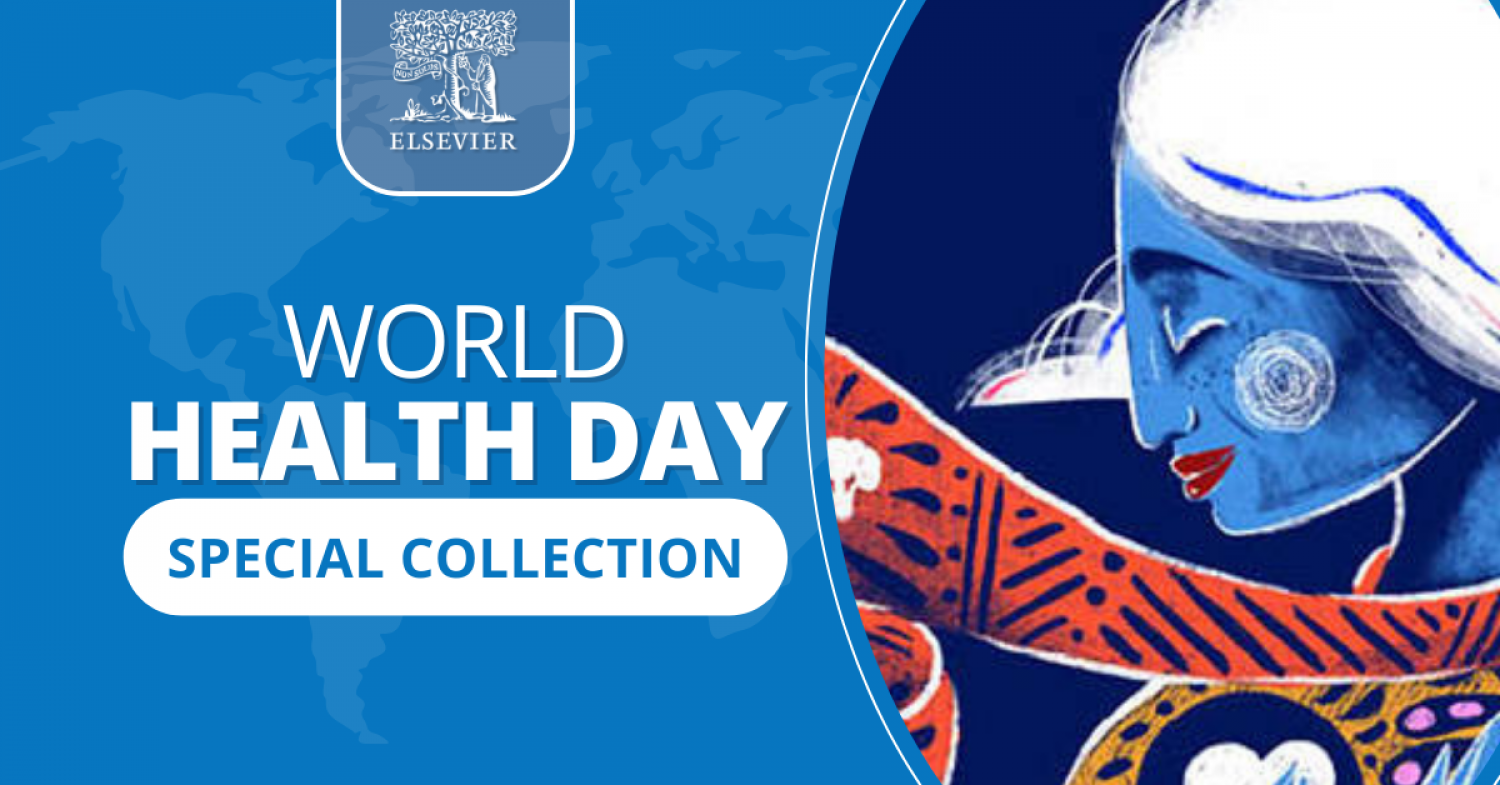
World Health Day is a global health awareness day celebrated every year on 7 April. This year’s theme "'My health, my right’ was chosen to champion the right of everyone, everywhere to have access to quality health services, education, and information, as well as safe drinking water, clean air, good nutrition, quality housing, decent working and environmental conditions, and freedom from discrimination.
To mark World Health Day 2024, Elsevier has curated a free special collection of journal articles and book chapters. Explore the latest global research relating to access to health for all, including The path to universal health coverage in five African and Asian countries: examining the association between insurance status and health-care use, Access to cancer preventive care and program considerations for people experiencing homelessness across four European countries: an exploratory qualitative study and Predictors and barriers to vaccination among older Syrian refugees in Lebanon: a cross-sectional analysis of a multi-wave longitudinal study.
The Thinking Healthcare System
Artificial Intelligence and Human Equity
2023, Pages 99-129
AI Assurance, Towards Trustworthy, Explainable, Safe, and Ethical AI, 2023, Pages 429-451
Manson's Tropical Diseases (Twentyfourth Edition), 2024, Pages 11-19
Manson's Tropical Diseases (Twentyfourth Edition), 2024, Pages 57-63
Hygiene and Environmental Health Advances, Volume 3, September 2022
Hygiene and Environmental Health Advances, Volume 9, March 2024
Hygiene and Environmental Health Advances, Volume 8, December 2023
Hygiene and Environmental Health Advances, Volume 3, September 2022
Hygiene and Environmental Health Advances, Volume 3, September 2022
Hygiene and Environmental Health Advances, Volume 4, December 2022
International Journal of Hygiene and Environmental Health, Volume 257, April 2024
International Journal of Hygiene and Environmental Health, Volume 254, September 2023
International Journal of Hygiene and Environmental Health, Volume 252, July 2023
International Journal of Hygiene and Environmental Health, Volume 250, May 2023
The Lancet Global Health, Volume 11, June 2023
The Lancet Global Health, Volume 11, September 2023
The Lancet Global Health, Volume 11, December 2023
The Lancet Global Health, Volume 11, December 2023
The Lancet Global Health, Volume 12, January 2024
The Lancet Global Health, Volume 12, January 2024
The Lancet Global Health, Volume 12, January 2024
The Lancet Digital Health, Volume 5, March 2023
eClinicalMedicine, Volume 62, August 2023
Redox Biology, Volume 59, February 2023
Respiratory Physiology and Neurobiology, Volume 316, October 2023
SLAS Discovery, Volume 27, April 2022
Journal of Biomedical Informatics, Volume 139, March 2023
Journal of Biomedical Informatics, Volume 138, February 2023
International Journal of Medical Informatics, Volume 171, March 2023
American Journal of Obstetrics and Gynecology, Volume 228, May 2023
Desalination, Volume 571, 1 February 2024
Journal of Healthcare Quality Research, Volume 39, March 2024
Neoplasia (United States), Volume 37, March 2023
The Lancet Regional Health - Southeast Asia, Volume 23, April 2024
Lancet Regional Health - Americas, Volume 21, May 2023
eClinicalMedicine, Volume 63, September 2023
Mitochondrion, Volume 51, March 2020
Healthcare, Volume 12, March 2024
Neuroscience, Volume 525, 10 August 2023
International Journal of Hygiene and Environmental Health, Volume 257, April 2024
International Journal of Hygiene and Environmental Health, Volume 235, June 2021
International Journal of Hygiene and Environmental Health, Volume 239, January 2022
Cancer Letters, Volume 586, 1 April 2024
Measurement: Sensors, Volume 32, April 2024, 101056
Desalination, Volume 569, 1 January 2024
Hygiene and Environmental Health Advances, Volume 6, June 2023
